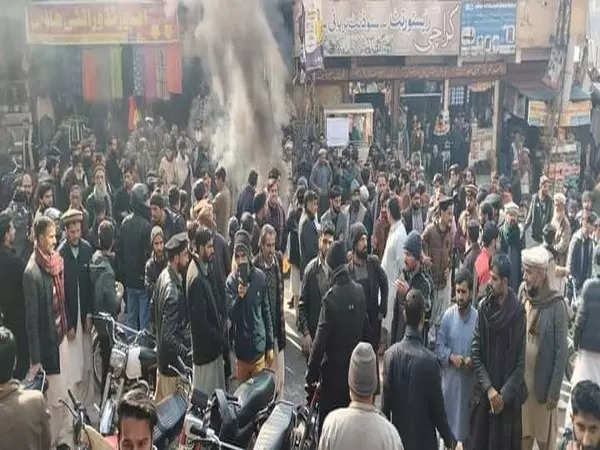Gilgit-Baltistan Governor Syed Mehdi Shah highlighted the region’s financial crisis and asked for financial aid from the federal government, reported Dawn.
In a meeting with Federal Minister for Planning Ahsan Iqbal on Wednesday, Shah communicated about the serious financial crisis the Gilgit-Baltistan government was facing.
According to a press release, the governor requested the federal minister to release funds for PSDP projects and annual grants of the GB government.
Sources told Dawn that the federal government had not released the annual financial development grant of the GB as the region depends on the financial grant of the federal government.
The governor also requested the federal minister to order the release of Rs 500 million for the endowment funds of Baltistan University.
Iqbal assured the GB governor that he would also try to get the amount released for the funds, reported Dawn.
Meanwhile, the region is facing a serious shortage of wheat. However, due to an increase in the wheat price across the country and GB, the GB government had to purchase less wheat which resulted in the wheat shortage in the area as additional funds from the federal government are required to purchase the required quantity of wheat for the area people, reported Dawn.
Weeks of anger over food shortage and runaway inflation have snowballed into massive anti-government demonstrations in Pakistan-occupied Kashmir and illegally held Gilgit Baltistan.
People from all walks of life in nearly all parts of the occupied regions blocked highways and burnt tyres to express their resentment against the government.
Protesters said they were unable to make ends meet owing to the government’s policy failures which resulted in a sharp rise in the wheat price.
Pakistan is going through an unprecedented economic crisis, which has essentially manifested in the form of a sudden shortage of flour prices. Government depots that provide subsidized wheat to citizens have been locked.
The ripple effects of the crisis, however, are even more worrisome in PoK and Gilgit Baltistan as people here have already been discriminated against historically.
Observers have time and again blamed the government for being both negligent and systematically discriminatory towards the people of PoK.
They say Islamabad has ensured over the past seven-and-a-half decades that the people of Pakistan-occupied Kashmir remain marginalized.
Islamabad has also been accused of meting out second-class citizen treatment to the people of PoK.
Pakistan has misruled these regions since it illegally gained its control post-British-India partition in 1947.
People here say, they have historically been treated as second-class citizens and are subjected to intimidation and cruelty if they ask for equality.

